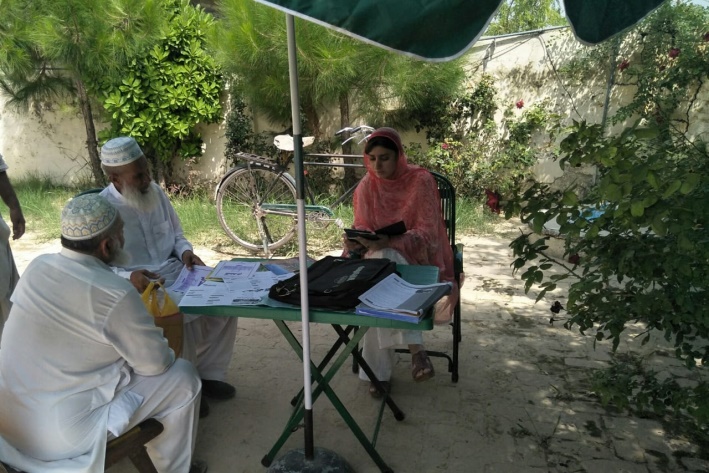Plantwise Most Read 2018
With 2018 drawing to a close we take a look at the most popular articles on the Plantwise blog this year, along with some firm favourites.
El Puesto para Plantas de Achuapa, Nicaragua ayuda a mantener la producción de ajonjolí
Por Solveig Danielsen, Luis Medina, Patricia Castillo y Eduardo Hidalgo El ajonjolí es un cultivo de mucha importancia socioeconómica para los pequeños productores de la franja del pacífico de Nicaragua. Desde principio de los años 90, la Cooperativa Juan Francisco Paz Silva produce y procesa ajonjolí para la exportación de aceite a Estados Unidos, Inglaterra…
The Achuapa plant clinic helps to maintain sesame yields in Nicaragua
By Solveig Danielsen, Luis Medina, Patricia Castillo and Eduardo Hidalgo Sesame is a crop of great socioeconomic importance for smallholder farmers of the pacific region of Nicaragua. Since the early 90s, the Juan Francisco Paz Silva Cooperative has produced sesame oil, mainly for export to the United States, England and Japan.
Including more women in Plantwise Pakistan
With a strong emphasis on making sure gender is embedded within the entire programme, Plantwise Pakistan has been actively pursuing the participation of more women in its activities and implementation. Realising the important role of females in agricultural development and the need to build their own capacity, the Agriculture Department of Punjab nominated 12 female…
Plantwise launches in Khyber Pakhtunkhwa province of Pakistan
A Memorandum of Understanding (MoU) has been signed between CABI and Pakistan’s Agriculture Department Khyber Pakhtunkhwa (KPK) to launch the Plantwise programme in the province.
Bringing technical support to isolated ethnic groups in the Mosquitia region of Honduras
By Eduardo Hidalgo, Project Scientist, CABI South America The Mosquitia is a territory of 16,997 km², located on the Caribbean coast of Honduras and inhabited mainly by the indigenous Miskito, Tawahka, Pech, and Garífuna ethnic groups. Of the 100,000 inhabitants, 36% are Miskitos who depend mainly on agriculture and fishing. The Mosquitia is one of…
Llevando apoyo técnico a las etnias aisladas de la Mosquitia, Honduras
Por Eduardo Hidalgo La Mosquitia es un territorio de 16.997 km², ubicado en la costa del Caribe de Honduras y habitado principalmente por las etnias indígenas misquita, tawahka, pech y garífuna. La población es de 100,000 habitantes de los cuales el 36% son misquitos y sus principales actividades son la agricultura y la pesca. La…
Más allá del conocimiento: Estrategias para frenar el daño del gorgojo de los Andes en Perú
Por Fernando Escobal Valencia, Doctor de Plantas – INIA-Plantwise, Cajamarca – Perú El caserío Secsemayo pertenece al Centro Poblado Chamis, distrito Cajamarca, en la región Cajamarca; está ubicado a 20 kilómetros en dirección al sur – oeste de la ciudad capital, geográficamente enclavado en los andes cajamarquinos a 3,200 m.s.n.m.; bajo estas condiciones, la papa…
Cultivating more women leaders in Plantwise Pakistan
It was such a pleasure to talk to Noureen Anum (Anum) over video call from across the border in India and hearing about her experiences and role in Plantwise. She is an agricultural officer in Taxila, a small Tehsil near Rawalpandi District in the Punjab province of Pakistan. Taxila has long been known for its…
Farmers now have a stronger voice in the Plant Health System
Recently in New Delhi, the Plantwise team in India held a plant health stakeholder workshop between 24th -26th September to discuss and review the programme implementation in 3 states across India; Jammu and Kashmir, Tamil Nadu, and Pondicherry. All in-country stakeholders including the State Department of Agriculture, Jammu M.S. Swaminathan Research Foundation, and National Agro…




